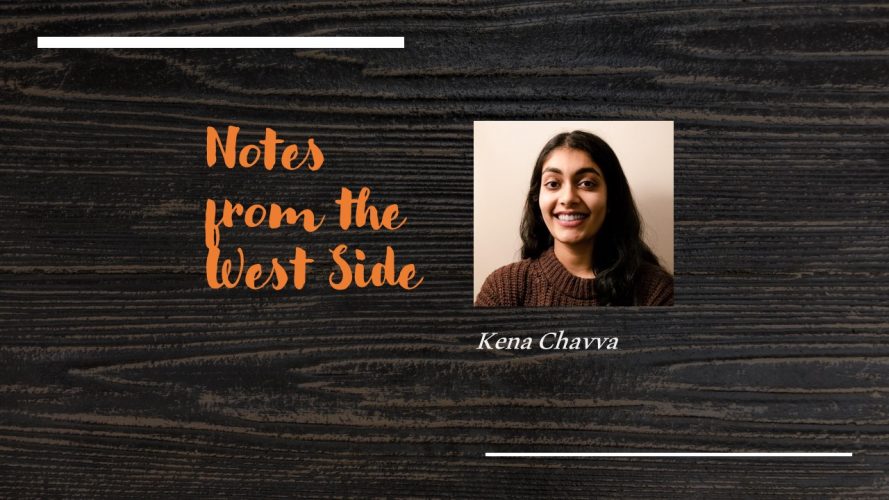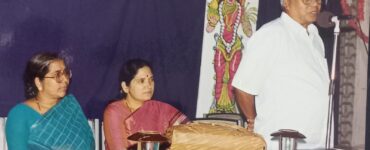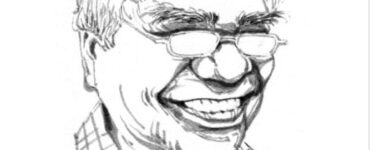In contrast to the “book talk”—which I examined in last month’s column—there exists a different type of literary event called a “craft talk”. While book talks are spaces for the general public to hear an author discuss their body of work, craft talks are for aspiring writers to hear accomplished writers discuss specific technical aspects of their writing processes. On Wednesday, March 23rd, at 7:30 PM, I attended one such craft talk given by the author Ling Ma, hosted by the Columbia School of Arts over Zoom.
Ling Ma first rose to international literary prominence in 2018 with the publication of her debut novel, Severance in which the novel’s protagonist, Candace Chen, survives a quasi-zombie apocalypse as a disease slowly decimates society. While Severance was critically acclaimed upon its release, its eerie prescience regarding the COVID-19 pandemic caused a resurgence of interest in it in March 2020, and the novel appeared on many Internet-circulated reading lists at the time.
Maybe it’s always unfair to make this statement—if not completely hubristic—but it seems to me, more so than any of today’s millennial writers, like Ottessa Moshfegh or Sally Rooney, that Ling Ma may be the preeminent millennial author, judging from her debut novel and a handful of published short stories. Not only was the virus in Severance prophetic, but Ma’s description of Candace Chen’s job—working for a Bible manufacturing company—coalesced both the numbing tedium and the strange fascination of labor under global capitalism in a way that subsequently published novels like Halle Butler’s The New Me and Christine Smallwood’s The Life of the Mind emulated.
Ma’s influences do not derive from nineteenth-century European novelists; rather, she, as an author that reflects and refracts our moment back to us, is hugely influenced by one thing in particular: Internet culture. The short story that she discussed, “Los Angeles”, took inspiration from screenshots from 1980s movies, zines, reality television, and most uniquely, images of architecture that the DJ Moby collected on his Tumblr account. Ma doesn’t simply transplant preexisting modes of novel-writing into the twenty-first century by including references to texting. Instead, she is particularly inspired by the modern world, and in turn, lets this shape her fiction.
Prior to the event, Ma sent out materials for the audience to read beforehand: the first text was the first few pages of the very first draft of “Los Angeles”, and the second text was the first few pages of the published version of the same story. In the craft talk, Ma read each of the texts out loud, and then explained the process between writing each draft: what she removed, developed, and added. Between the two versions of “Los Angeles”, she went through nine drafts over the course of two years. After this, she answered questions from the audience as they appeared in the Zoom chat.
This may sound dry, but the audience—myself included—was totally enthralled (a rare sight in a Zoom event!). We often think of writers’ diaries and letters as an unfiltered, unedited, genuine representations of them, but the truth is, writers like Franz Kafka, Sylvia Plath, and Fyodor Dostoevsky highly stylized even these personal documents. Rather, it is an accomplished writer’s first draft that rarely ever sees the light of day. It is a writer’s most well-protected secret.
Even for aspiring, not yet accomplished writers, so much popular writing advice pushes the idea of the “shitty first draft”. While most first drafts are indeed unformed and mediocre, the phrase “shitty” emphasizes shame, and suggests that writers ought not reveal their work until they’ve significantly improved it. Ma’s choice to share her first draft, in contrast, insisted on the importance of the first draft in the writing process. It wasn’t something to be shoved away; rather, it was something from which we could all learn how exactly a text becomes polished over the course of two years.
And how exactly did this text become polished over the course of two years? While we, the audience, had before us indelible proof that it did, the machination by which this happened seemed a bit unclear (which was ironic, because exposing machination is the goal of a craft talk). Ma’s process of writing seemed deeply, personally psychological. To many of the questions she was asked, she simply replied that she relied upon her intuition to tell her when a draft was done. It was all about feeling, rather than any unshakeable rule about how to write.
One reflection from her own experience as an MFA student at Cornell proved to be more instructive than any advice audience members explicitly sought from her. Ma said that she told her thesis advisor, J. Robert Lennon, that she was trying to write a novel to find out what the answers to her questions were. He replied, “I write a novel to know what the question even is.” In her writing process, perhaps Ma doesn’t reflect back our world at us, distorted for clarity’s sake. Instead, she shows us the possibility of something better than a how-to manual: she opens up a space for writing to be a process of play, of discovery and uncovering. Each word, each attempt, is a grasp at something—though we may not be entirely sure until the end what that something is, or even what we wanted it to be.
*









నమస్కారం మిత్రమా… మీరు ఇలాంటి మరిన్ని పోస్ట్ చేస్తారని ఆషిస్తూ… పూజారి కిషోర్…
What a thoroughly and remarkably enjoyable piece. I’m struck by Chavva’s evident knowledge of literature and her ability to disseminate it in a way that is both insightful as to past literary trends (“We often think of writers’ diaries and letters as an unfiltered, unedited, genuine representations of them, but the truth is, writers like Franz Kafka, Sylvia Plath, and Fyodor Dostoevsky highly stylized even these personal documents”) and acutely aware of their future (“Instead, she shows us the possibility of something better than a how-to manual”). I can only hope that Chavva herself might publish such a work some day — though even if this article is all we receive from her, we will still have been very lucky indeed.